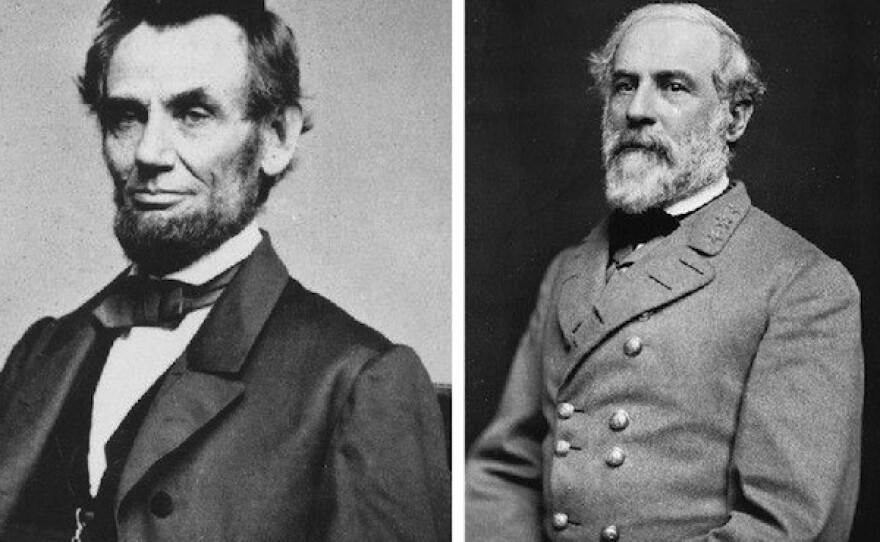From 2010 to 2015, composer and pianist Dave Burrell wrote 24 works inspired by his study of the Rosenbach of the Free Library of Philadelphia’s collection of Civil War documents and photos. The poems and lyrics of Monika Larsson also gave life to many of these compositions. Consulting with experts and scholars, Burrell and Larsson traced the route of Abraham Lincoln’s funeral train from Washington to Springfield, Illinois.
The project coincided with the 150th anniversary of the Civil War; the final concert was in April 2015. In this two-part feature, we look at one of Burrell’s first compositions, “Robert E. Lee: Nocturne,” and the last, “Homage to the Martyr,” in which Burrell put Larsson’s poem about Abraham Lincoln to music.
Radio Script—Part 1:
Meridee Duddleston: When the Rosenbach of the Free Library of Philadelphia searched for a creative outlet for its trove of Civil War materials it turned to avant-garde jazz pianist and composer Dave Burrell. The result: a five-year series of salon-style concerts with music Burrell composed, inspired by Gettysburg and Vicksburg, a slave’s run for freedom, the emotions of mothers, generals, the nation, and Lincoln.
Burrell started by poring over books, notebooks, and letters, taking notes in a reading room. As his knowledge of the war deepened, some obvious images became hazy—take his musical depiction of Confederate General Robert E. Lee in 1861.
Dave Burrell: I didn’t want to write this mighty mighty patriotic confederate march for Robert at that point. I wrote a waltz.
MD: Burrell discerned a reticence among Lee and other the officers on the battlefield, many of whom were friends from West Point. And so among his early musical portraits Lee got the waltz.
DB: And I’ll tell you why, because I read so many letters from him to his children, his wife, and his family about the sacrifice that he had to make for being so far away from them for so long, and it struck me as romantic.
With the 150th anniversary of the Civil War over, Burrell says the project only heightened his sense of the unfinished business surrounding race relations and equality, and his own drive to find an afterlife for the spirit of his music.
Radio Script—Part 2:
MD: It took 12 days for Lincoln’s funeral train to arrive at its final stop in Springfield, Illinois—a somber trip through more than 400 towns and cities including Baltimore, Harrisburg, Philadelphia, and New York. Jazz pianist and composer Dave Burrell and poet Monika Larsson studied and then re-traced that solemn journey last summer to prepare for a final segment of original compositions inspired by the 150th anniversary of the Civil War.
Monika Larsson: The most striking to me were people lining up along the railroad knowing he is going to come tomorrow, maybe the day after tomorrow. Everybody and anybody would show up.
MD: The Rosenbach of the Free Library of Philadelphia instigated their five-year expedition when it commissioned Burrell’s look at its Civil War collection. Burrell worked with Larsson as he built a critical mass of knowledge for his 24 compositions. Her poem “Homage to the Martyr” is inspired by Lincoln’s assassination in 1865 and the collective pain that followed the train to its final stop in Springfield.
ML: And they manifested the whole period with signs, and one that struck me very hard at the end was “Home is the Martyr,” and that is the end of the poem.
MD: Burrell says the project was life-changing.
DB: When Monika and I started to research what we had for 1865, we found that it wasn’t finalized at all, with the assassination, his life cut short, and the turmoil that followed.
MD: They’re not ready to draw the curtain—especially in light of present-day racial inequality. The project is simmering in their minds, fueling other musical possibilities.


